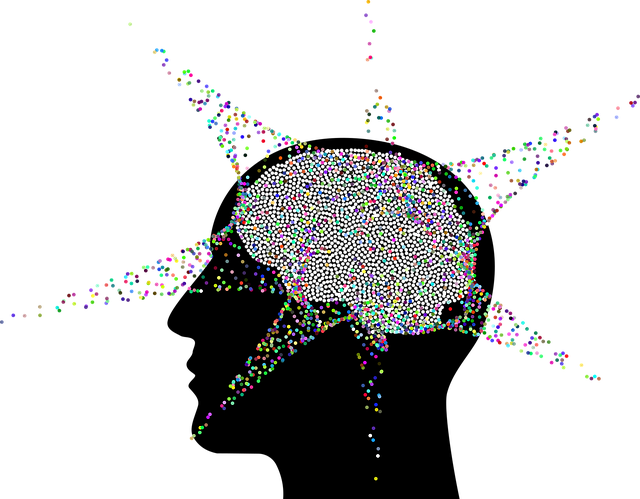Northglenn Postpartum Depression Therapy tackles a common yet overlooked issue among new mothers, offering tailored interventions using evidence-based practices and data-driven RFM analysis. This approach segments at-risk mothers based on engagement, financial resources, and service utilization, enabling personalized care that includes compassionate cultivation and empathy building. Community outreach programs featuring resilience-building exercises and mental health education empower mothers with tools to manage stress and early symptom recognition. Collaboration with local partners creates a supportive network, leveraging open dialogues and emotional well-being promotion techniques for holistic, sustainable recovery.
In Northglenn communities, postpartum depression (PPD) impacts a significant number of mothers, underscoring the need for comprehensive mental health support. This article explores an innovative approach combining RFM (Reach, Frequency, and Monetary Value) analysis with resilience-building exercises to combat PPD. By identifying at-risk mothers through RFM strategies, targeted intervention programs can be implemented effectively. We delve into how community engagement and collaboration are vital for sustaining postpartum mental health care in Northglenn, ensuring long-term well-being for new mothers.
- Understanding Postpartum Depression in Northglenn Communities
- The Role of RFM (Reach, Frequency, and Monetary Value) Analysis in Identifying At-Risk Mothers
- Resilience Building Exercises: A Comprehensive Approach to Mental Health Support
- Implementing RFM Strategies for Effective Depression Intervention Programs
- Community Engagement and Collaboration for Sustained Postpartum Mental Health Care
Understanding Postpartum Depression in Northglenn Communities

Postpartum Depression (PPD) is a common yet often overlooked mental health challenge that can significantly impact new mothers in Northglenn communities. With a growing awareness of its prevalence, there is an increasing need for accessible support and treatment options. This mental health disorder typically manifests within the first year after childbirth, affecting women’s emotional well-being and daily functioning. Symptoms may include intense sadness, anxiety, fatigue, irritability, and difficulty bonding with the baby.
In Northglenn, where cultural and socioeconomic factors can play a role in mental health experiences, providing tailored interventions is essential. Local communities have initiated programs offering Northglenn postpartum depression therapy, incorporating evidence-based practices such as Social Skills Training and Communication Strategies to enhance resilience. Additionally, Crisis Intervention Guidance equips mothers with coping mechanisms during stressful situations, fostering better overall mental well-being. These initiatives aim to destigmatize PPD and ensure that new mothers receive the necessary support to navigate this phase of their lives.
The Role of RFM (Reach, Frequency, and Monetary Value) Analysis in Identifying At-Risk Mothers

In the context of Northglenn Postpartum Depression Therapy, Reach, Frequency, and Monetary Value (RFM) analysis plays a pivotal role in identifying at-risk mothers. This data-driven approach allows healthcare professionals to segment their patient population based on key behavioral metrics—how often a mother engages with services, how deeply they engage, and the financial resources they commit. By understanding these dynamics, therapists can tailor interventions more effectively, ensuring that at-risk mothers receive the compassionate cultivation practices and empathy building strategies needed for depression prevention.
RFM analysis provides insights into the unique needs and challenges of different patient groups. For instance, mothers with higher engagement but lower monetary investment might require financial accessibility options, while those engaging infrequently may need encouragement through tailored outreach strategies. This level of granularity enables more personalized care, fostering a supportive environment that promotes mental well-being and empowers at-risk mothers to overcome postpartum depression.
Resilience Building Exercises: A Comprehensive Approach to Mental Health Support

Resilience Building Exercises offer a comprehensive approach to mental health support, particularly for new mothers experiencing postpartum depression in Northglenn. These exercises are designed to empower individuals with effective tools to navigate stress and adversity, fostering emotional resilience over time. Through a combination of evidence-based techniques, such as cognitive-behavioral therapy, mindfulness practices, and communication strategies, these programs aim to enhance coping mechanisms and overall well-being.
Community Outreach Program Implementation plays a pivotal role in making this support accessible. By integrating these exercises into community settings, Northglenn residents have easier access to necessary resources without the barrier of formal therapy appointments. Encouraging participation in these initiatives promotes a sense of belonging and can facilitate open conversations about mental health, further normalizing the experience for those facing challenges like postpartum depression.
Implementing RFM Strategies for Effective Depression Intervention Programs

Implementing RFM (Reach, Frequency, and Message) strategies is a powerful approach for designing effective depression intervention programs, particularly tailored for Northglenn Postpartum Depression Therapy. By reaching individuals at risk with targeted messaging, these strategies ensure that valuable mental health resources are frequently delivered to those who need them most. The key lies in tailoring the message to resonate with specific populations, addressing the unique challenges of postpartum depression. For instance, combining individual therapy sessions with group support and educational programs can create a holistic RFM framework.
This integrated approach not only improves mood management but also fosters social skills training, an essential component of recovery. Mental Health Education Programs Design centered around RFM principles can empower individuals to recognize symptoms early on and seek help promptly. By regularly exposing them to evidence-based strategies through diverse communication channels, these programs can enhance their understanding of mental health and encourage proactive participation in self-care practices.
Community Engagement and Collaboration for Sustained Postpartum Mental Health Care

In the context of Northglenn Postpartum Depression Therapy, community engagement and collaboration are vital for sustaining long-term mental health care. Building a supportive network within the community can significantly enhance the effectiveness of postpartum support services. By fostering partnerships with local healthcare providers, community centers, and support groups, mental health professionals can ensure comprehensive care that addresses not just individual needs but also the unique challenges faced by new mothers in Northglenn. This collaborative approach leverages Mind Over Matter principles to promote emotional well-being through integrated services and shared resources.
Effective communication strategies are at the heart of this engagement process. Utilizing Emotional Well-being Promotion Techniques, healthcare providers can facilitate open dialogues between mothers, caregivers, and support staff. These conversations not only shed light on individual experiences but also help identify potential risks or setbacks early on. Such proactive measures enable prompt interventions and tailored support, ensuring that new mothers receive the nurturing environment they need to thrive. This community-driven approach underscores the importance of a holistic strategy in addressing postpartum mental health concerns.
In addressing Northglenn communities’ postpartum depression, a multi-faceted approach combining RFM analysis and resilience building exercises proves instrumental. By identifying at-risk mothers through Reach, Frequency, and Monetary Value metrics, targeted interventions can be swiftly deployed. Community engagement is key to sustaining these programs, ensuring long-term mental health support for new mothers in Northglenn postpartum depression therapy.












